Digital 52 8️⃣ - Free Coworking supported by the municipality, Multi-Purpose Space, Local Impact, Circular Economy: the fascinating story of Millepiani Coworking.

[Business Models - Multipurpose Spaces - Positive Impact]
Read the story of Millepiani on page 40 of "Around The World in 250 Coworking Spaces".
There is a saying we always share with people we meet when we talk about coworking spaces and it goes like this: “Coworking is the same dish everyone cooks differently.” And the story you are about to read is the perfect illustration of it. Bringing up a food analogy when going to Italy might sound cliché, but Millepiani truly is a unique coworking dish.
We’ve been following Felipe and Silvia since 2016, and their journey with Millepiani has been one of resilience, dedication, and patience.
Resilience, because the duo has had a hard journey to get to where they are, including working with multiple stakeholders (such as the municipality of Rome as their landlord).
Dedication, because although it has been hard, they never stop believing in each other and in what they want to achieve through their space. If you keep reading, you’ll discover what we mean.
And finally, Patience, because beyond being on a journey to build a coworking community, they’ve also challenged themselves to educate people and institutions on the hidden powers of a physical space centered on people. It’s about time for you to discover how they’ve achieved it all. Without further ado, meet Millepiani Coworking.
➡️ A little refresher
Who’s behind the featured space?
Felipe Goycoolea and Silvia Dori. The Husband and Wife duo are the original Co/Founders at Millepiani. But along the way, the founding team grew and today the Millepiani board has a total of 5 founders, including Giancarlo Contaldi, Linda Crimersmois, and Luigi Meschini.
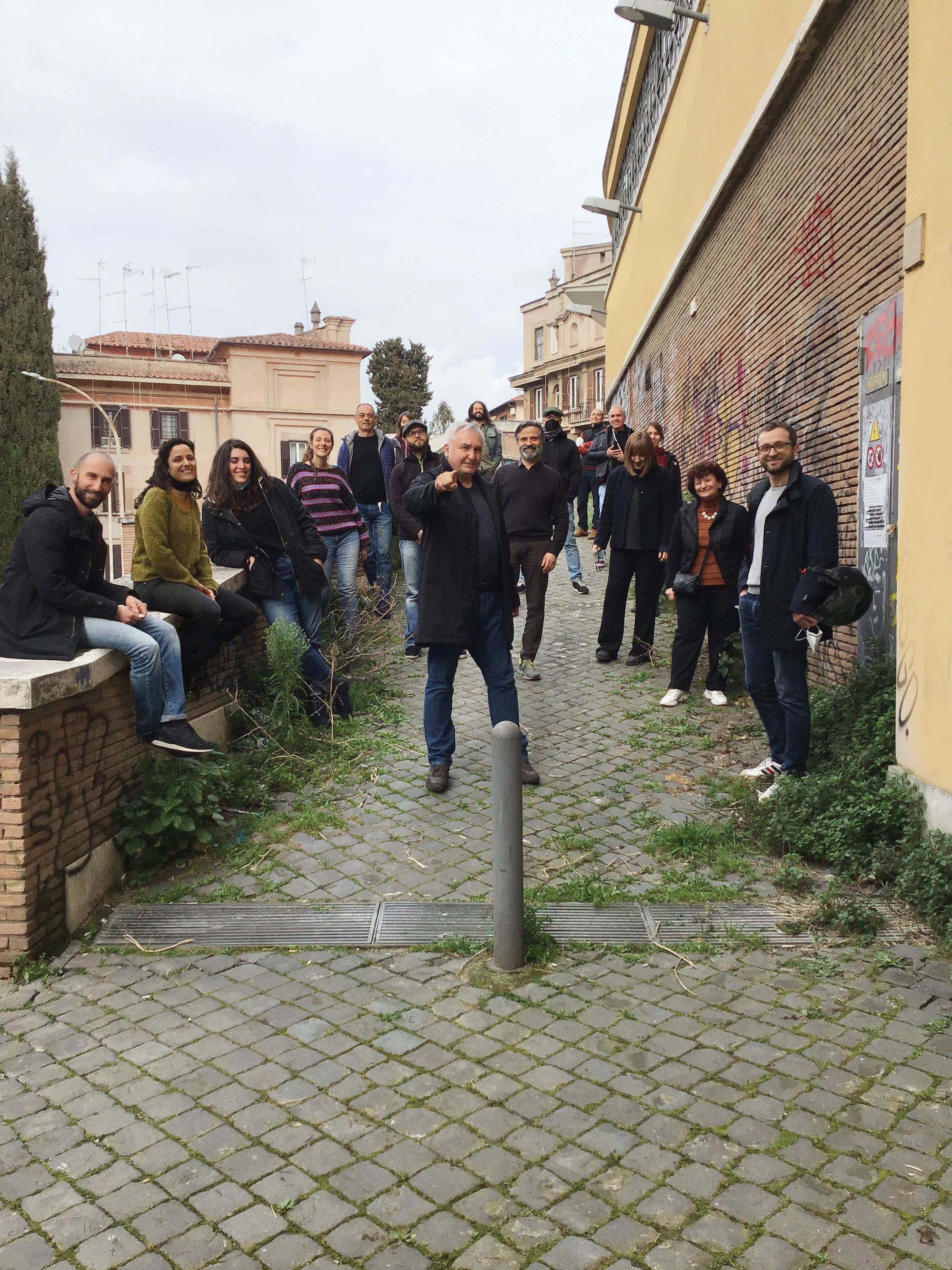
➡️ Key Figures
- Opening year: 2013
- Size when they started: 400 sqm
- Size today: 400 sqm
➡️ A little tour around Millepiani
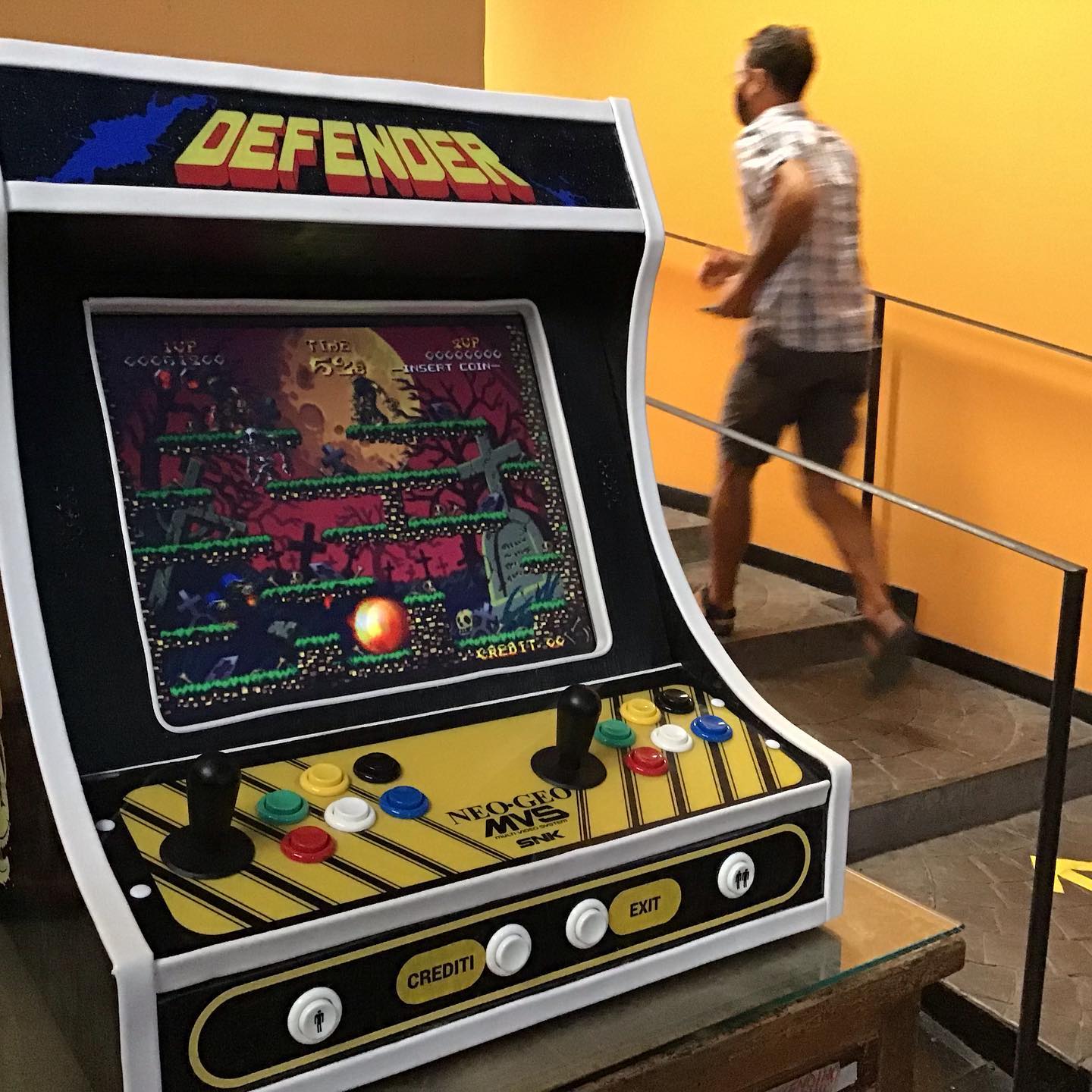
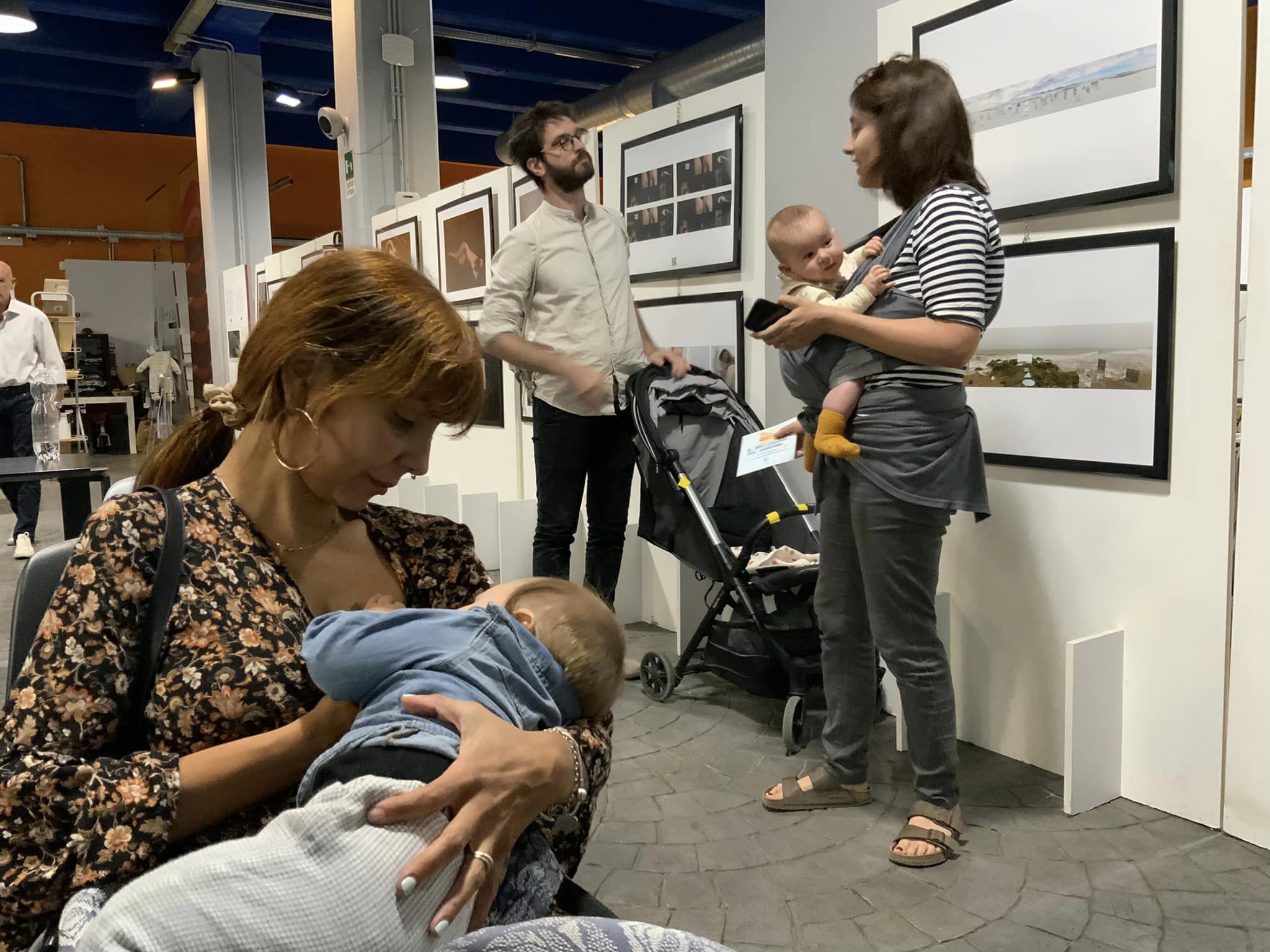
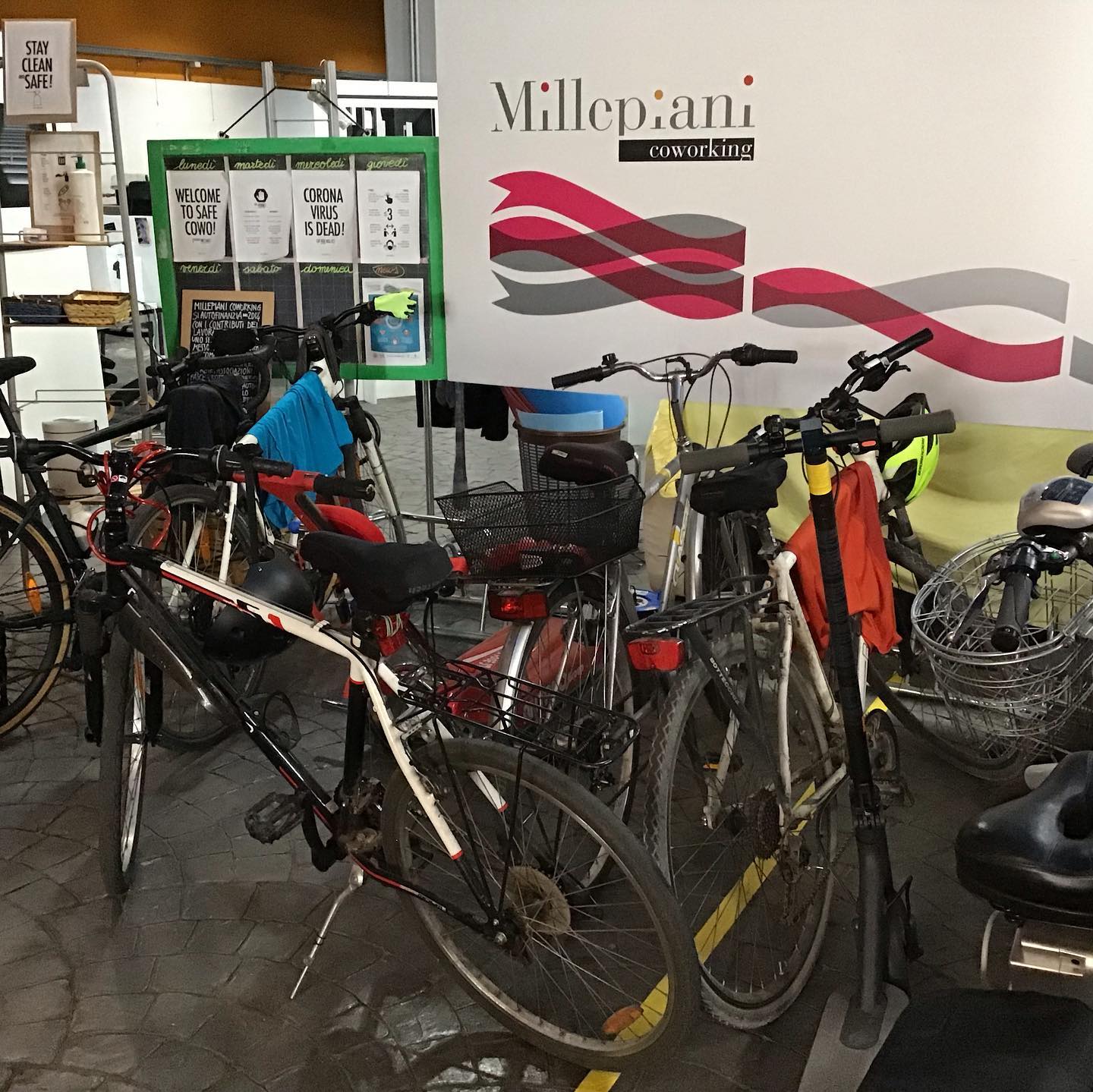
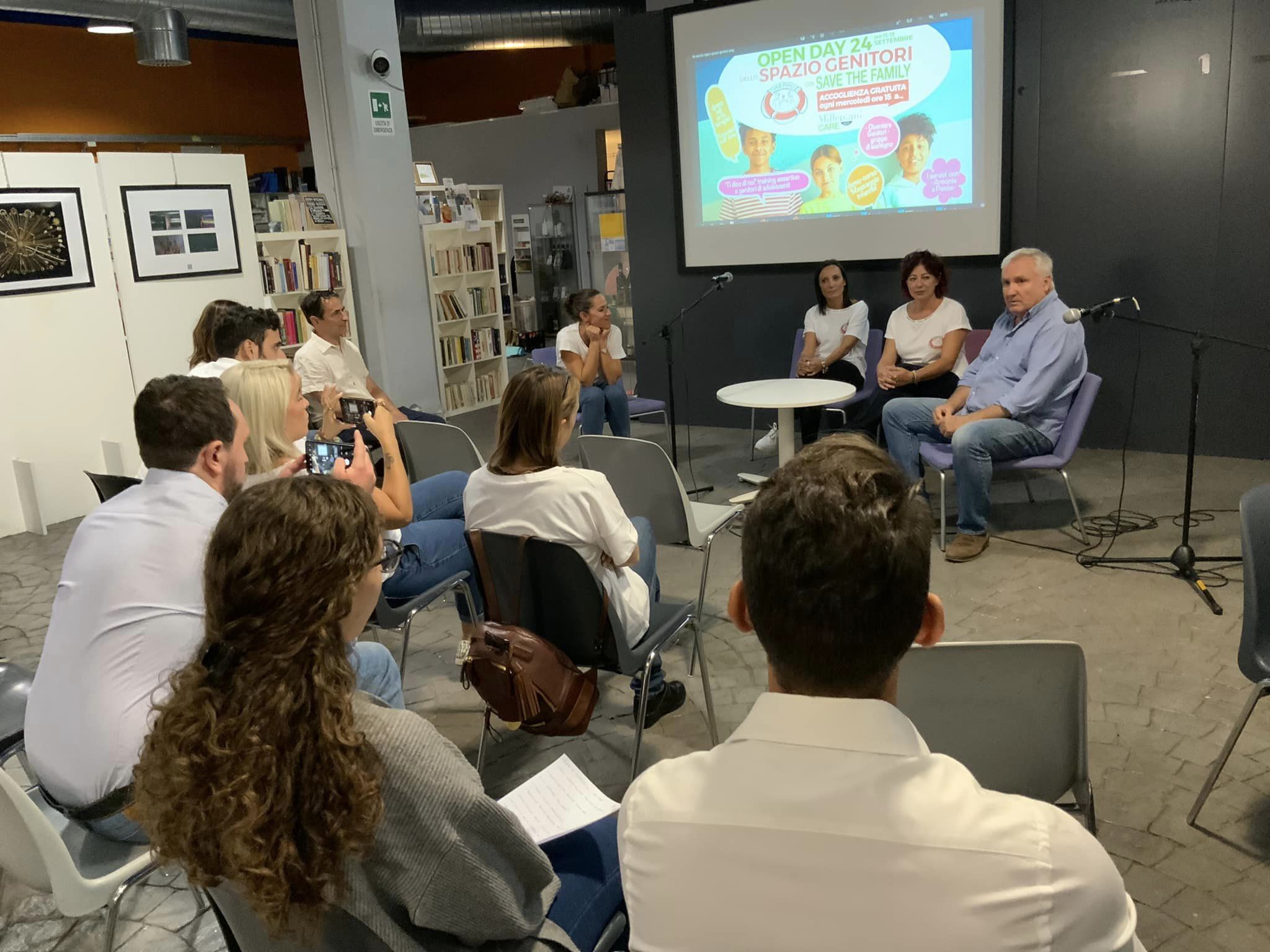
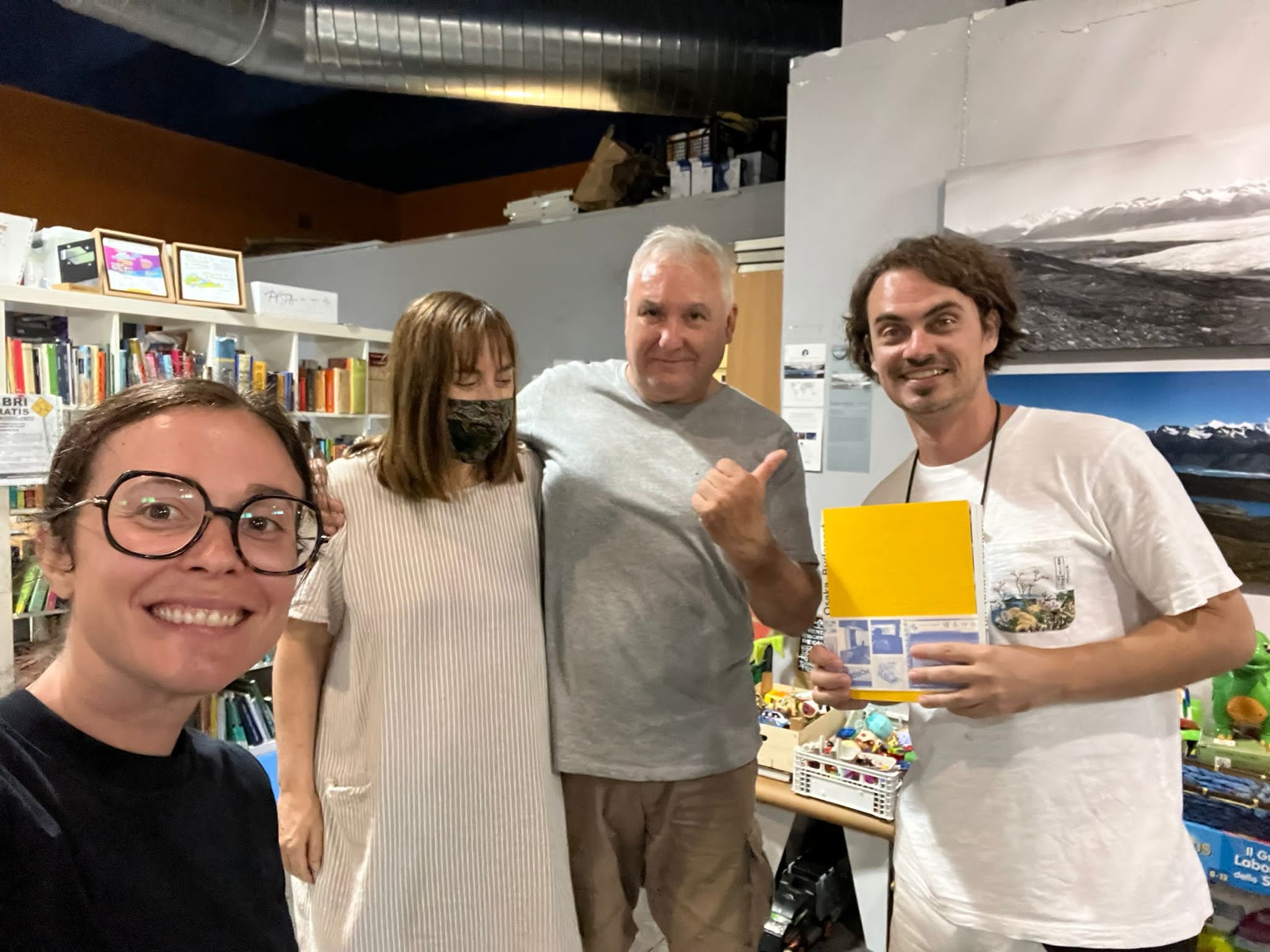
➡️ Behind-the-scenes
Things you didn't read in aw250cs
"Our business model is what the community can bring."
Felipe Goycoolea, Co/Founder Millepiani
➡️ Millepiani Today
To prepare this edition of Digital52, I asked Felipe to join me online and share with me what was happening in Millepiania since publishing our book. I knew this call would be like a wave of positivity, but I didn’t expect how much it would impact me going forward. We went so deep into the journey of Millepiani that I felt even more grateful and appreciative for all the work the duo has put in. Over the last 9 years, they have created a unique, accessible, and open space for everyone in their neighborhood.
Speaking of, and before we dive into where Millepiani stands today, here is a little video of Garbatella, the neighborhood the space is based at, which is really worth discovering, aboard … a Vespa of course:
And if you have not heard of Garbatella before, you HAVE to read this article from the Financial Time to understand why Millepiani is so important in its local ecosystem.
💫 Mentality Changes - Growing Their Impact.
💬 What's new at Millepiani since the last time we spoke?
Quite a lot of things. We’ve been having tough times since the last we spoke, but the beautiful thing is, this place never, ever stops. That's amazing. Everything changed. We grew our community with more nomads and digital workers. Seeing our community finally return to the space makes us very happy.
💬 You have quite a unique business structure. Can you expand on how that works?
We have a contract with the municipality of Rome. We use this space for free and pay for electricity and water. But in return, we give the space for free to the territory, and to the surrounding community. Members pay €75 each month, which is a contribution to the space that we reinvest in the community.
As we get the space for free, we are not allowed to receive money. Members pay directly to a special bank. I say “special bank” because it is not a “real” bank. You can decide what to do with the money and finance projects.
We receive a good revenue stream because our community has 300 members. With the contributions we received, we created a solidarity fund. For example, if you get sick or need maternity or paternity leave or if you lose your work; you don't need to pay your contribution because we work in this mutualistic system.
Our business model is what the community can bring. The people here bring projects and work and contribute in bigger amounts so we can pay the bills. For example, during the lockdown, we didn’t have anyone here. We lost 75% of our contributions, but as we don’t pay rent, it was okay. We could pay the bills through other projects.
💬 The space combines a coworking space, an art gallery, and an event venue. Why was it important for you to bring together different usage under one roof?
We belong to the circular economy. When we started, we just had a coworking space. People from the neighborhood approached us and asked if we could support them with their projects.
As we are a public space, we always say yes.
So with time, what happened that we gathered many local and national associations here at Millepiani. Today, we have an association that distributes food grown locally (The Food Assembly), an association for women's empowerment, and an association that gives children's books and children's clothes to people in need. We also have Greenpeace. Those associations are not all here at the same time but our space is big enough, so we divide the space differently every day depending on which association we host.
The direct result of that is the sheer volume of people that come by our space every month, which we can see through Google Plus, is huge! We see around 900 check-ins a month! Understanding that we have so many visitors every month, we added an Art gallery, to make Art accessible to everyone.
Beyond being an Art gallery, we also host an accelerator program: Linden Lab, which helps people transform their ideas into concrete projects. As you can see, everything we do has a social element to it. Through Millepiani, we give back to our local community in many ways. I often say we offer militant care.
💬 How do you think COVID-19 changed Rome as a city, as well as the Millepiani community?
We’ve seen a lot of coworking spaces close here during COVID-19. We need to talk about the hard truth because people can hear and change everything. With current economic changes, there is less and less personal contact. We see people starting and creating new work opportunities for themselves, and for us, that’s incredible.
COVID-19 has brought a new era, a time for creating a new system. But many people want to return to the old normality. And we see that when they don’t change their mindset, they lose their work. They become more aggressive. We always try to put all that aside and focus on the reason we created this place and why this place is gold. The pandemic has helped us grow our thinking a lot, and it confirmed that the economic model we profess is the right one for a better world.
That’s why we say that we are working in a churning economy. We used to say we belong to the sharing economy, but nobody understands what a sharing economy or circular economy is here.
➡️ Reflections on building Millepiani
💬 What has been your biggest learning out of the whole experience?
When we started, we looked at different models in France, and here to learn how other ecosystems were growing their impact locally. Out of that, we created our code, working with our values, and what we believe in.
If I look back at the Filipe of seven years ago, I see I am a very different person thanks to Millepiani. I feel stronger and I believe in people beyond everything. The real way forward is as a community. When you have a community around you, all your dreams can come true.
Do you know how I selected our first members? By telling them a joke. If they understood the joke and laughed at it, they could join our community. But, many people ran away, saying I was crazy, and that’s ok.
💬 And if tomorrow someone approaches you and tells you, “Okay, Felipe, I am thinking about opening a coworking space”, what would be your advice to them?
We do see many people here who come to understand what we do and try to copy it.
I often say, don’t copy a model, make your own and make it with your community.
There is a philosopher who said:
“We destroyed the world of the workers. The new world is workers that have connections between their professions.”
It's so simple. They're just architects or psychologists. But what happens when they are all together? They create new kinds of synergies.
Many people critique us. They tell us: “You're not a real coworking space”. But I ask myself: who are they to tell me I am not a coworking space? Is it because I don’t rent tables and chairs that I am not a coworking space? But I am ok with that, I like to be an outsider. We are not an industry, we are people. We are the people who bring forward a new social-economic model for our neighborhood. And it does not mean we do not make money. In early 2020, the Minister of Economy here in Italy gave us a prize for the best coworking space in the country.
Why am I saying all of this? I would advise people who start coworking spaces to not listen to external noise. Be clear on who you are and what you are. And when you find people like you, embrace the opportunity, and create another kind of space with them.
💬 If you could ask anything from a coworking operator, not necessarily someone from Italy, let's say someone from anywhere in the world. What would you like to ask them?
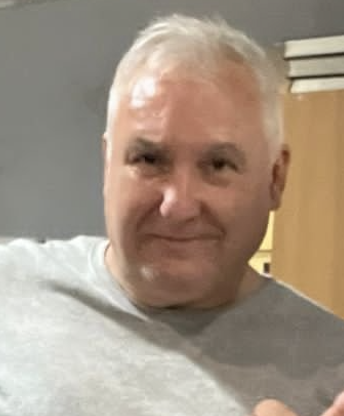
💬 And if you could ask something of people using coworking spaces, what would you like to ask them?
What do you give back to the coworking community you belong to?
I often ask this question to people who come here to Millepiani to join our community, and I often use the analogy behind “the rule of the fish - if you don’t eat it after 3 days, it starts to smell bad.”
For Millepiani, that means if you buy a seat, and don’t come for 3 days, it's much better you “put it away.” If you come in and you just take and never give back, people lose interest in you. Instead, if you come often, and interact with our community, then the magic happens. We need this filter because we are probably the most economical coworking space in Italy. Being the cheapest means everyone who is on the cheap end wants to join, which becomes a challenge when building a community.
So yes, I like to ask coworkers "What are you ready to give back to your coworking community?"
💬 And my last question to you then is what would be your biggest dream for Millepiani?
First, I’d love for our municipality to understand what we are doing here. We are into social innovation and I see how hard it is for them to understand. I dream of the day they will understand what coworking is the same way they get what kindergarten is.
It’ll take time, but we’ll get there.
Let’s discuss the story of Millepiani on Discord! Come join our extended community of readers by clicking on the link below.

On another note, we are meeting again online this month!
Join us on November 29th, to discuss wellness and well-being in coworking spaces. Come and meet spaces and companies that’ve been bringing more wellness and well-being to coworking for the last decade! Get your ticket by clicking on the image below.
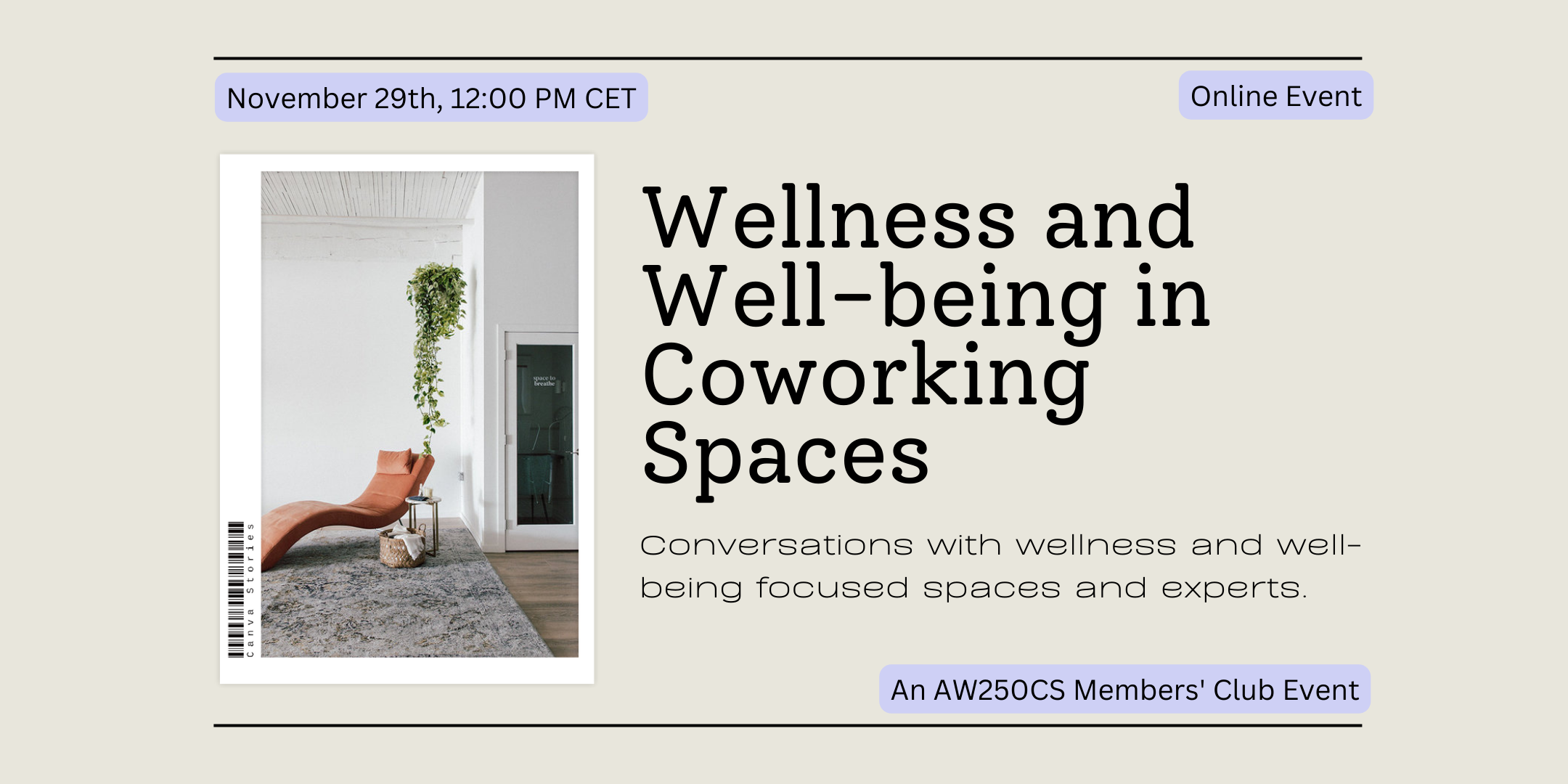
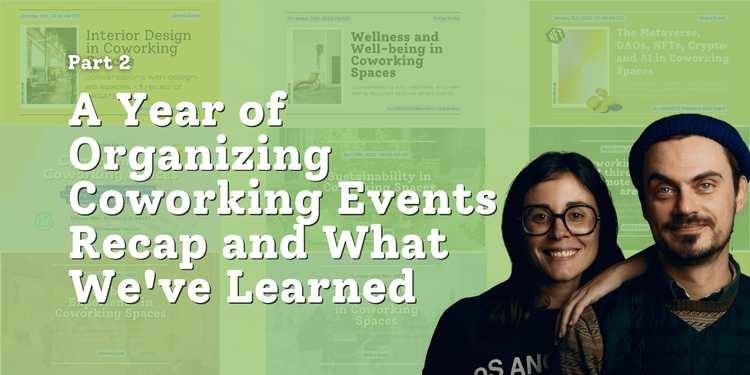




Member discussion